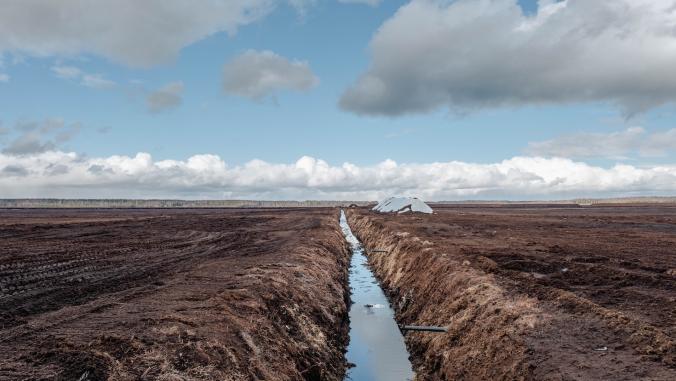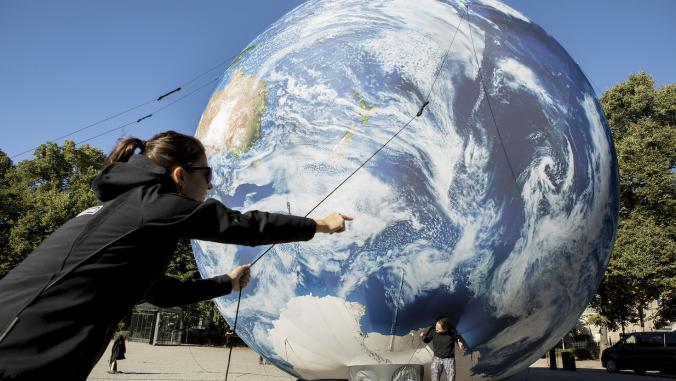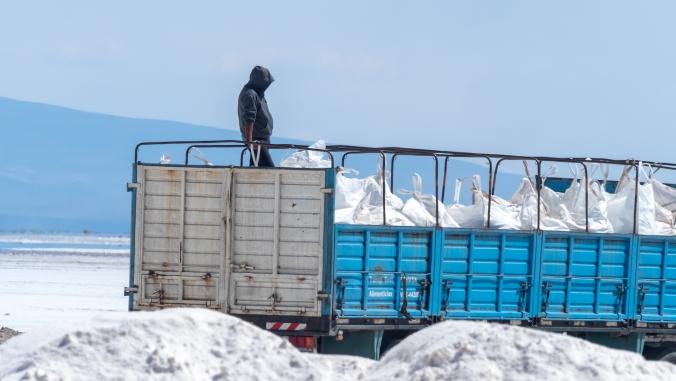Get ready for business unusual in the world of water
Fresh ideas for a circular future emerge from Stockholm World Water Week.

Stockholm World Water Week has come to a close. For me, the essence of the event is the ability to spend time with the diverse global water community: NGOs, multinationals, academics, public sector and civil society.
The meeting of these stakeholder groups is the greatest strength of the event: exchanging ideas and brainstorming new initiatives is what propels us forward in the belief that we can deliver on the Sustainable Development Goals (SDGs) and, in particular, SDG 6, the one that prioritizes universal access to safe drinking water, sanitation and hygiene.
During the week, this community identified opportunities to innovate and collaborate, and renewed our sense of urgency about the challenge at hand. I personally committed to bring in stakeholders outside of the water sector to accelerate the introduction of new ideas within the world of water; to encourage new partnerships with unusual suspects; and to proactively engage with the information, communication and technology sector to accelerate the delivery of "digital water" solutions at scale.
Exchanging ideas and brainstorming new initiatives is what propels us forward in the belief that we can deliver on the Sustainable Development Goals.
The week kicked off with the "Water in the Circular Economy" seminar. Let me share several key takeaways from this session (courtesy of my colleague, Marielle Larson, a consultant with Deloitte).
- The future of the circular economy for water hinges on expanding partnerships into new industries, scaling innovative nutrient capture technologies (pharmaceuticals, insect bio-reactor) and developing decentralized distribution models.
- Applying circular economy strategies to water creates opportunities across diverse sectors for water efficiency, resource capture, water reuse and a reduction in impacts from pollution and climate change.
- Both the "butterfly" diagram and ReSolve framework can help make the circular economy concepts more actionable when it comes to water.
- The technology needed to promote a circular water economy already exists. However, social stigma, prohibitive regulations, financial limitations and a shortage of staff trained in circular economy principles are some major barriers to wide-scale adoption.
- Leading-edge models of knowledge sharing are reducing the risk of adopting new circular economy solutions.
- Real-time water quality data can help drive innovation, fit for purpose use, and adoption of the circular economy, in part by building trust among consumers about the quality of their water.
- Integrated waste solutions, partnerships with other industries and decentralized models enable more locally tailored solutions, innovative and often more cost efficient solutions.
- Further articulating the value of water in a variety of ways (financial, social license to operate, carbon reduction) is essential to proactively driving adoption before water becomes scarce.
A few other announcements and sessions of note for me:
- Anheuser-Busch InBev and World Wildlife Fund released a high-level overview of water and Africa in "Africa’s Watershed Moment: How Better Water Management Can Underpin Africa’s Development." The report clearly articulates the key issue: sustainable water management drives sustainable development. For those companies and NGOs operating in or considering investment in the region, this is a must read.
- A focus on Latin America — I was the keynote speaker for "The Circular Economy of Water: Water-Efficiency in the Industrial Sector," a session that included WRI, Argos, Heineken and Suez. A well-balanced discussion captured the benefits and challenges in moving to a circular economy with the industrial sector in Latin America. After this session and others on Latin America, I intend to focus on this region with multinationals and innovation in technology, business models, partnerships and funding.
- The Coca-Cola Company and its foundations are making a joint donation of more than $10 million to support relief and resilience efforts to counter the severity of a famine that has swept across 10 countries in the African Sahel. Their actions are revealing the breadth of the water issues in the African continent.
A busy week and signs of progress: We are witnessing an "unusual world" unfolding. Unusual collaborations will be our way forward.





